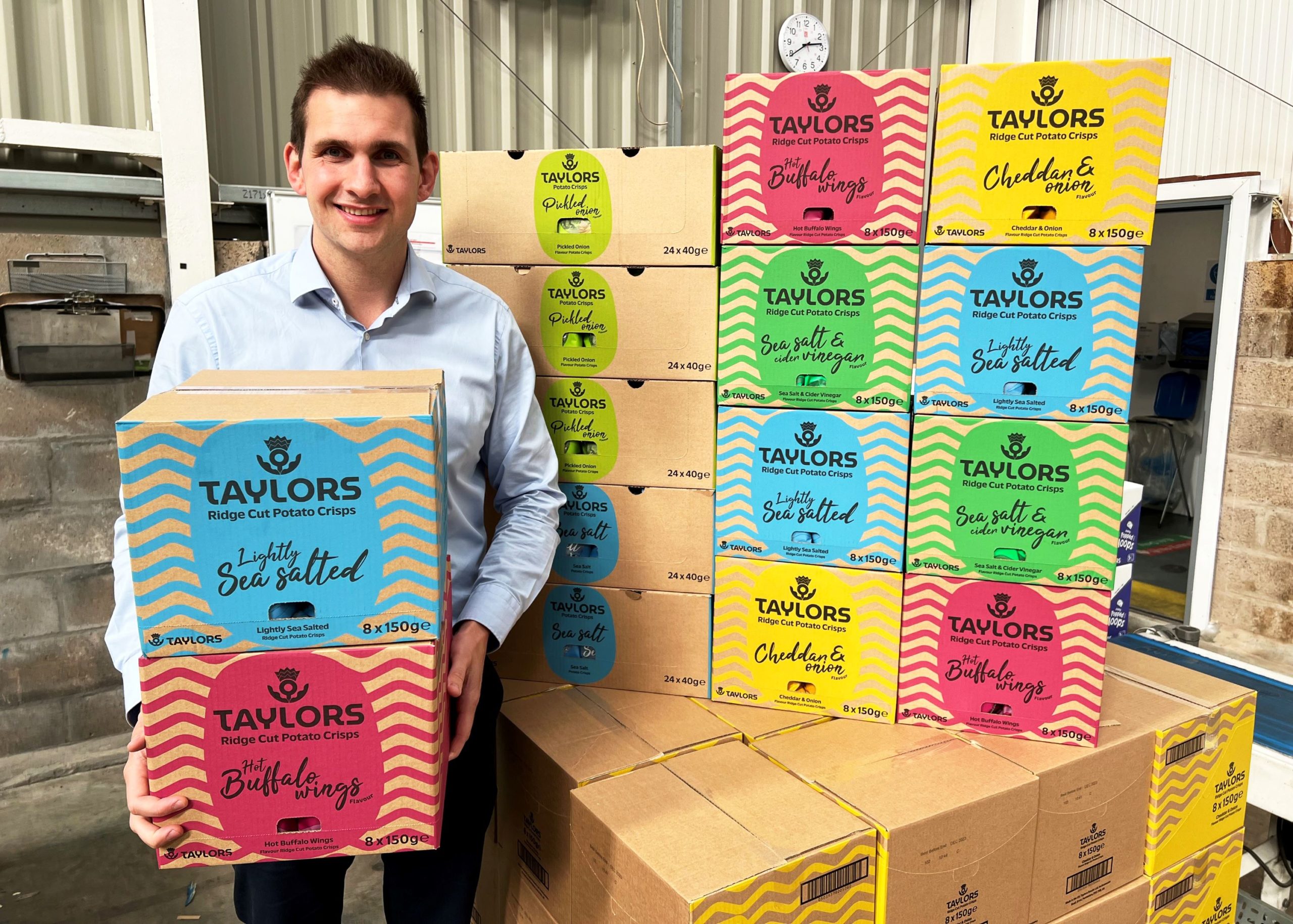A new project to enhance food safety in potato crisp production has started between Abertay University and Perthshire-based Taylors Snacks.
Focusing on minimising acrylamide, a natural chemical compound that can form in starchy foods when cooked at high temperatures, the findings of the research will benefit the whole industry as it seeks to meet the latest benchmarks to be set by the European Commission later this year.
This is the fifth in a series of case studies, developed as part of the 2023 RHASS Presidential Initiative (PI), exploring the science behind food and drink production.
The aim to reduce acrylamide in food is due to it being a probable carcinogen, although scientific evidence has not yet proven a direct correlation with human health. In the interests of consumer safety, however, in 2018, the European Commission issued an advisory benchmark for food processors cooking or baking products, which will be updated with new specifics later in 2023.
Abertay University is one of the leading centres for acrylamide research in the UK and approached local company Taylors Snacks, famous for producing Mackie’s of Scotland crisps, to suggest a collaboration to research and develop an online monitoring system to measure and manage levels of acrylamide in crisp production in real time. This will be a first for the industry.
“Acrylamide is an organic compound that can form in familiar carbohydrate-rich foods cooked or fried at high temperatures, including coffee, biscuits, cereals and crisps, when the sugars react with a specific amino acid at temperatures above 120C,” explains Professor Alberto Fiore, who is co-leading the project with forensic chemistry expert Dr Keith Sturrock at Abertay University’s Division of Engineering and Food Science. He has dedicated the last 15 years to acrylamide research, working with a number of businesses including multinational processors.
“In the home, acrylamide would occur in burnt toast or chips that have been in the oven for too long, but in manufacturing, it’s more nuanced. Working with industry like this is vital for our work to have real impact,” says Professor Fiore. “We can come up with the perfect solution in the lab, but it’s when we take it out of a control situation into real life that we see the implications and where we can make improvements. Working with Taylors Snacks will give us valuable insights and live scenarios that will positively impact wider industry research and development.”
Taylors Snacks, which rebranded from Mackies Crisps earlier this year, produces more than two million packets of crisps, popcorn and other snacks every month for retail, export, wholesale and food service from its base at Errol.
The project has been made possible with funding from Innovate UK’s Knowledge Transfer Partnership programme (KTP). It will build on the extensive work Taylors Snacks has already undertaken to minimise levels of acrylamide in its products, taking a holistic approach, analysing every stage from raw materials to processes and end product.
This phase is essential to build a full understanding on which to create the inline digital monitoring, innovative technology that will anticipate acrylamide levels and allow processes to be adapted in real time.
“This is pioneering work which will blaze a trail in the industry,” says James Taylor, Managing Director of Taylors Snacks. “As a fourth-generation family business, we’ve always been proud to produce quality products, consistently developing both high food standards and customer satisfaction. We constantly aim to exceed the best practice benchmark and working with Abertay University will allow us to optimise processes to continue to produce safe, great tasting products for consumers while benefiting the rest of the sector who will learn from this work with Abertay University.”
Professor Fiore’s research and collaborative work to date has included looking at all variables from plant varieties to the radio frequency of ovens, introducing new technology or naturally occurring antioxidants, and developing recipes, all of which will be included in the discovery research alongside developing the inline monitoring technology.
Ongoing wider acrylamide research includes developing gene edited wheat varieties with low asparagine content to mitigate acrylamide formation in the cooking process.
An associate from Abertay University will be based at Taylors Snack’s Head Office to manage the project and maximise the research development and knowledge transfer. Taylors Snacks Ltd will also be contributing towards the cost of the project.
Linda Tinson of the RHASS Presidential Initiative adds:
“The project illustrates the value of science at every stage of food production, and the two-way advantage of introducing lab research into real life processes. It is when academia joins with industry so closely and constructively that both enterprise and science progress.”
The RHASS Presidents’ Initiative will culminate with a showcase at the Royal Highland Show, bringing together different sectors and stories from over the past months and creating a lasting legacy of materials which will be made available for anyone to access.

